The Brown Trout
By Brian Klonoski
I have kept and eaten only a handful of trout in my lifetime. Rarely, in my mind — and I love fish — does the dinner justify the death. As the planet warms, trout are having a rougher and rougher go at it, and there are usually tastier things to eat on camping trips. Things that don’t require a rendezvous with death and blood and guts just prior to mealtime. But I have made exceptions.
A recent trip into the Emigrant Wilderness was one of them. I was there with my friend, Hergy, who was learning to fly fish. He had never really had the chance to catch, clean, cook and eat a fish. Here we were in the high country, with plenty of brown trout coming to hand out of a healthy fishery, so we decided to indulge. It was a profound experience, and one of the best things I’ve eaten in a long time.
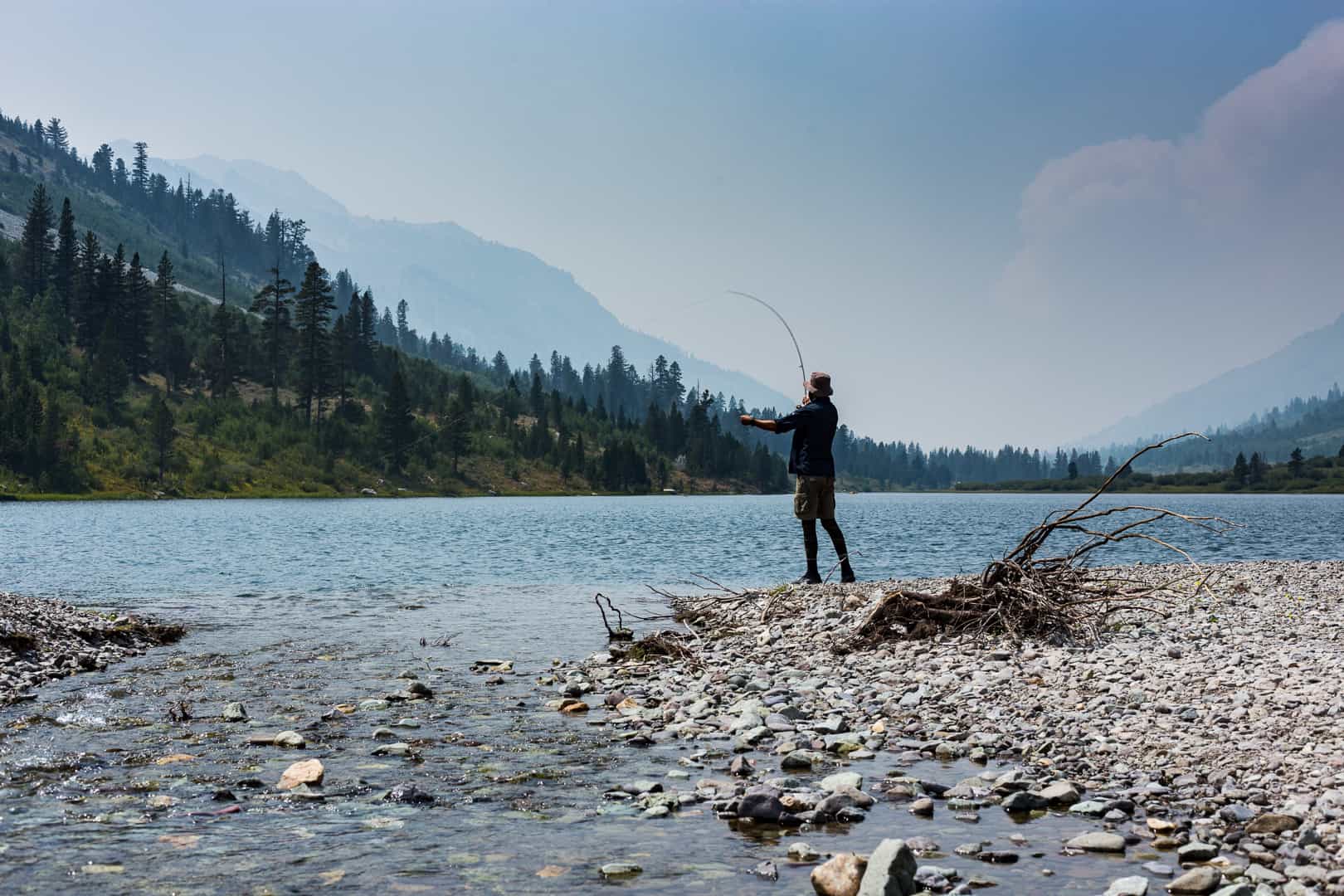
Hergy fishing Kennedy Lake, where he caught our dinner. A pyrocumulus cloud from the Donnell Fire billows in the background. The fire was raging just a few miles away and ended up burning more than 36,000 acres.
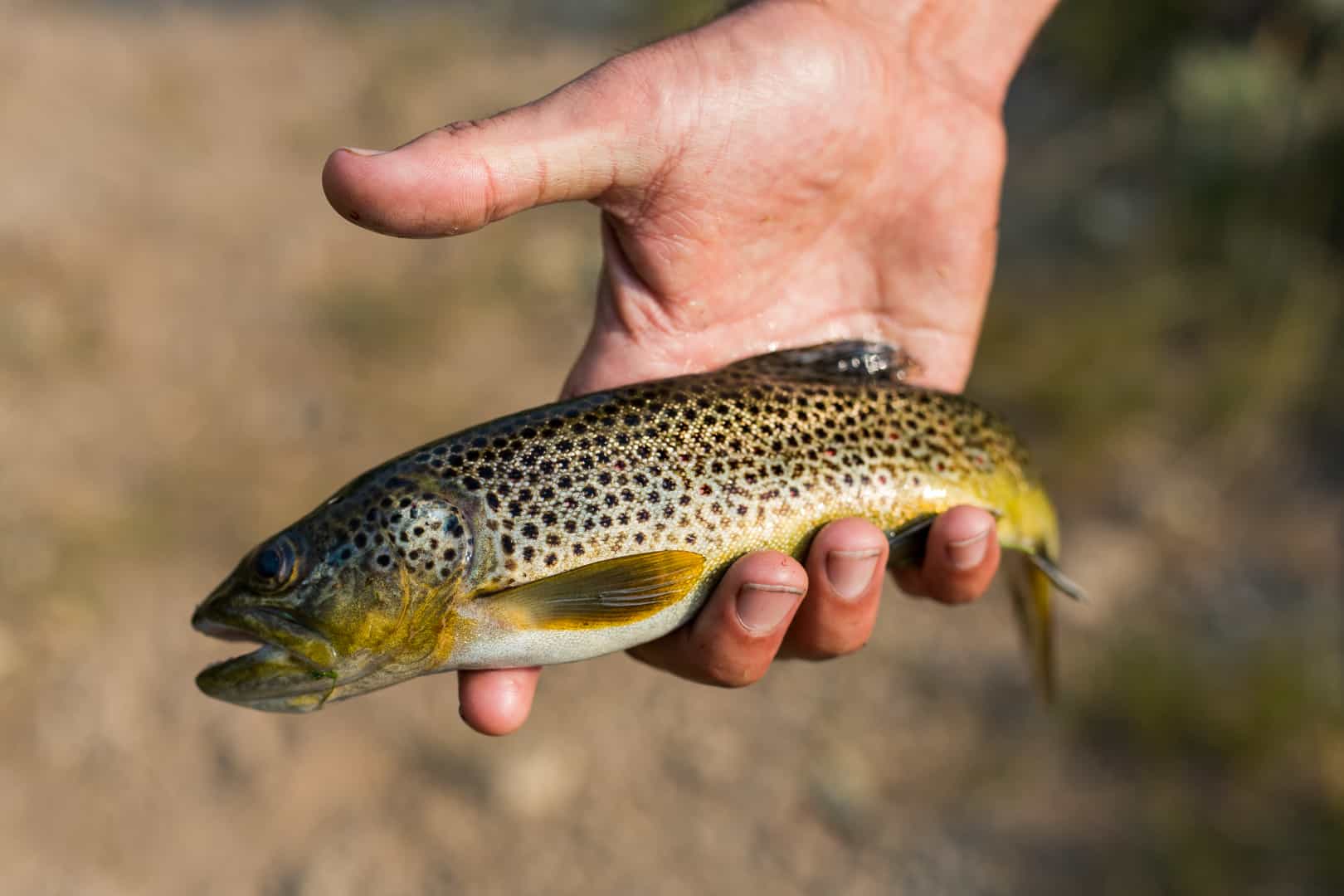
As soon as Hergy and I had agreed to keep a fish, they stopped rising and we couldn’t catch one to save our lives. We kicked ourselves for being indecisive earlier and letting so many go. I started back toward camp a bit dejected, but before long Hergy came ambling down the trail with this fine brown trout dangling from his hand.
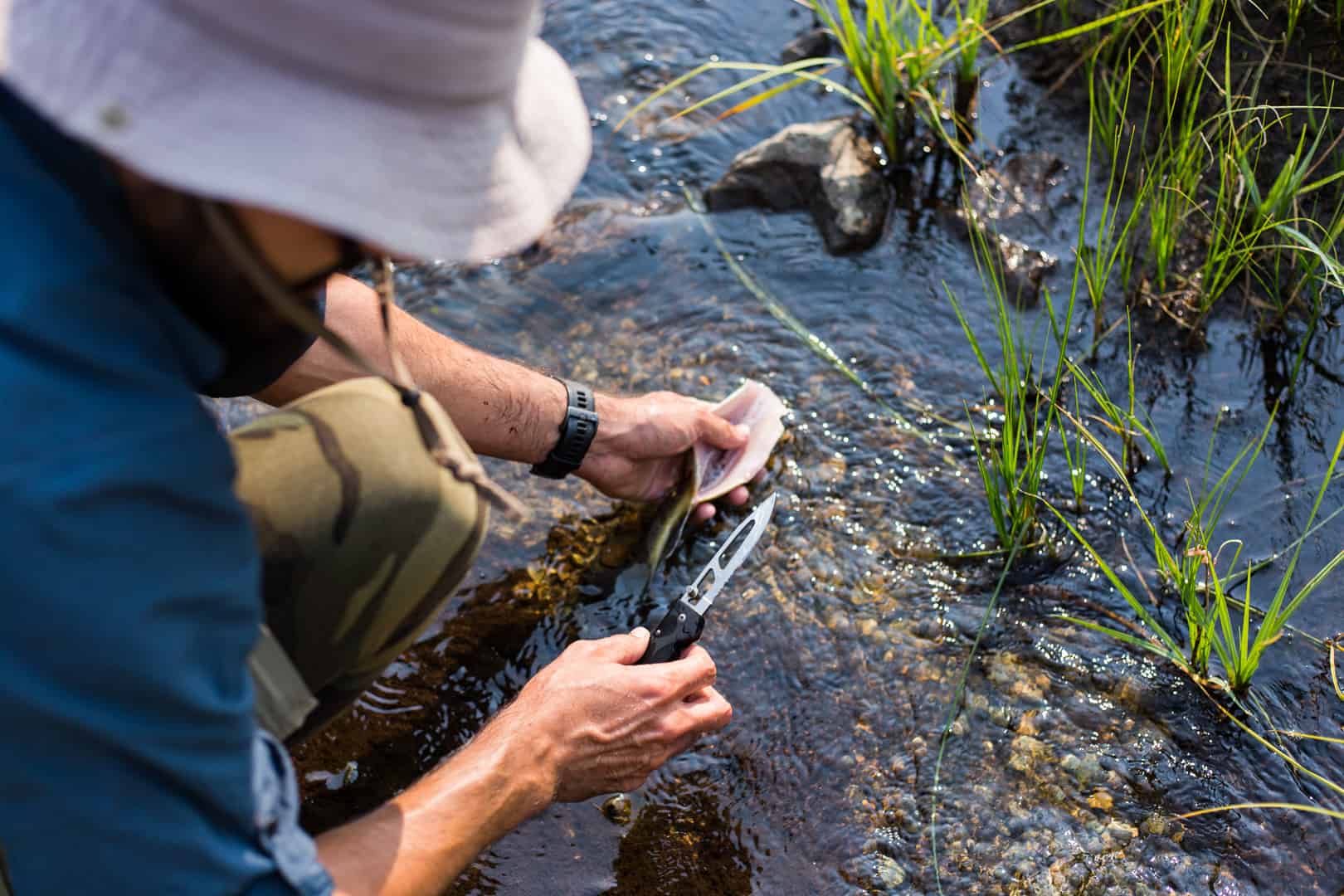
I handed Hergy a dull knife and he cleaned the fish to perfection despite the handicap. If you make a couple of cuts in the right places, you can remove the head and all the nasty bits with one yank.
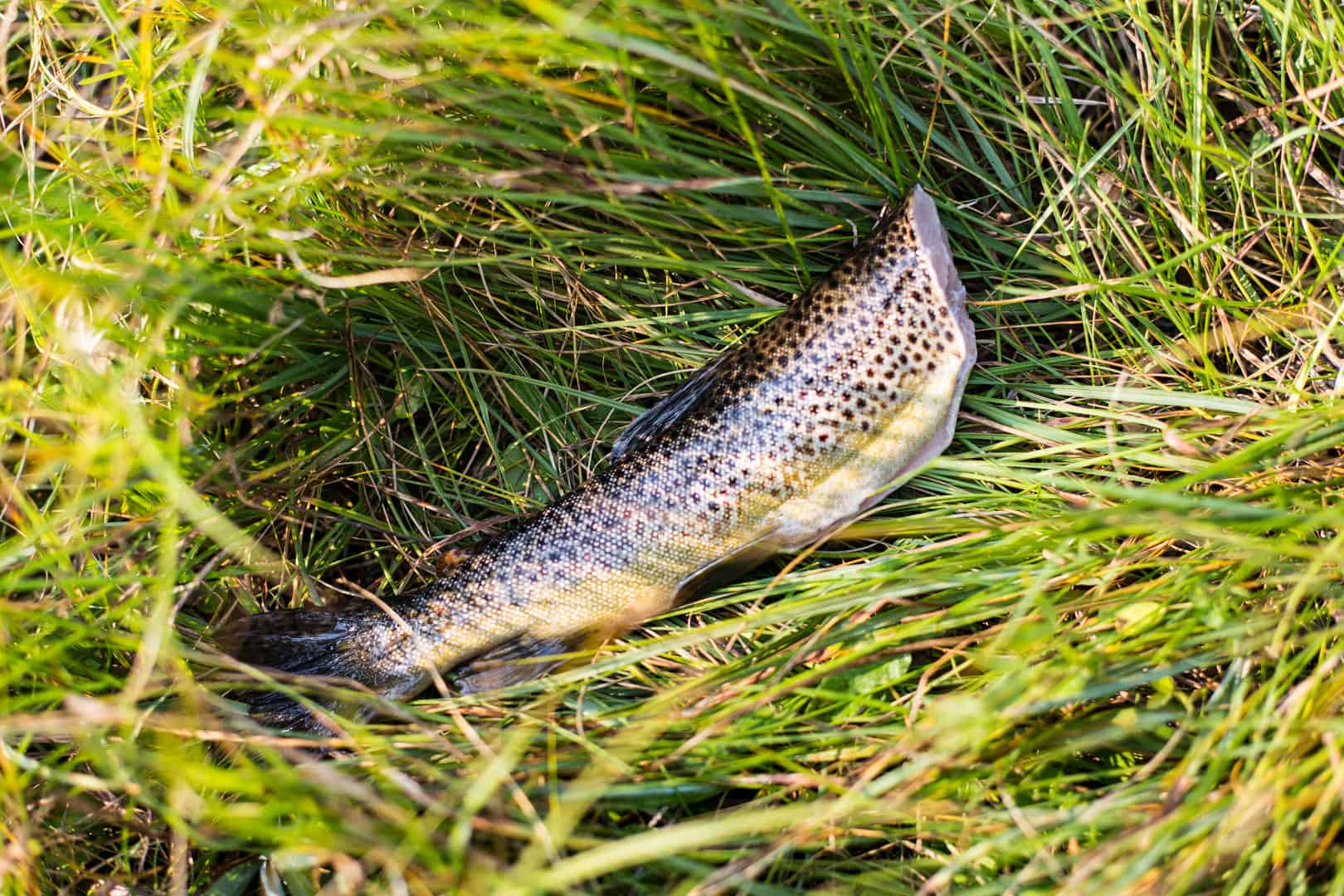
Here’s what you’re left with if you do it right — just the skin and butterflied fillets, ready to be stuffed with salt, pepper, and lemon slices.

It’s rare to have a campfire in the Sierra Nevada backcountry, but they were permitted in this section of Emigrant Wilderness. Hergy started one the old fashioned way with flint and steel. I don’t think we would have kept a fish had we been unable cook it over a wood fire — it’s an important part of the experience we were after.

When the fire was ready, we seasoned the trout with salt and pepper, stuffed it with lemon slices and wrapped it in foil. Three minutes per side, then a few more to rest, and it was ready.
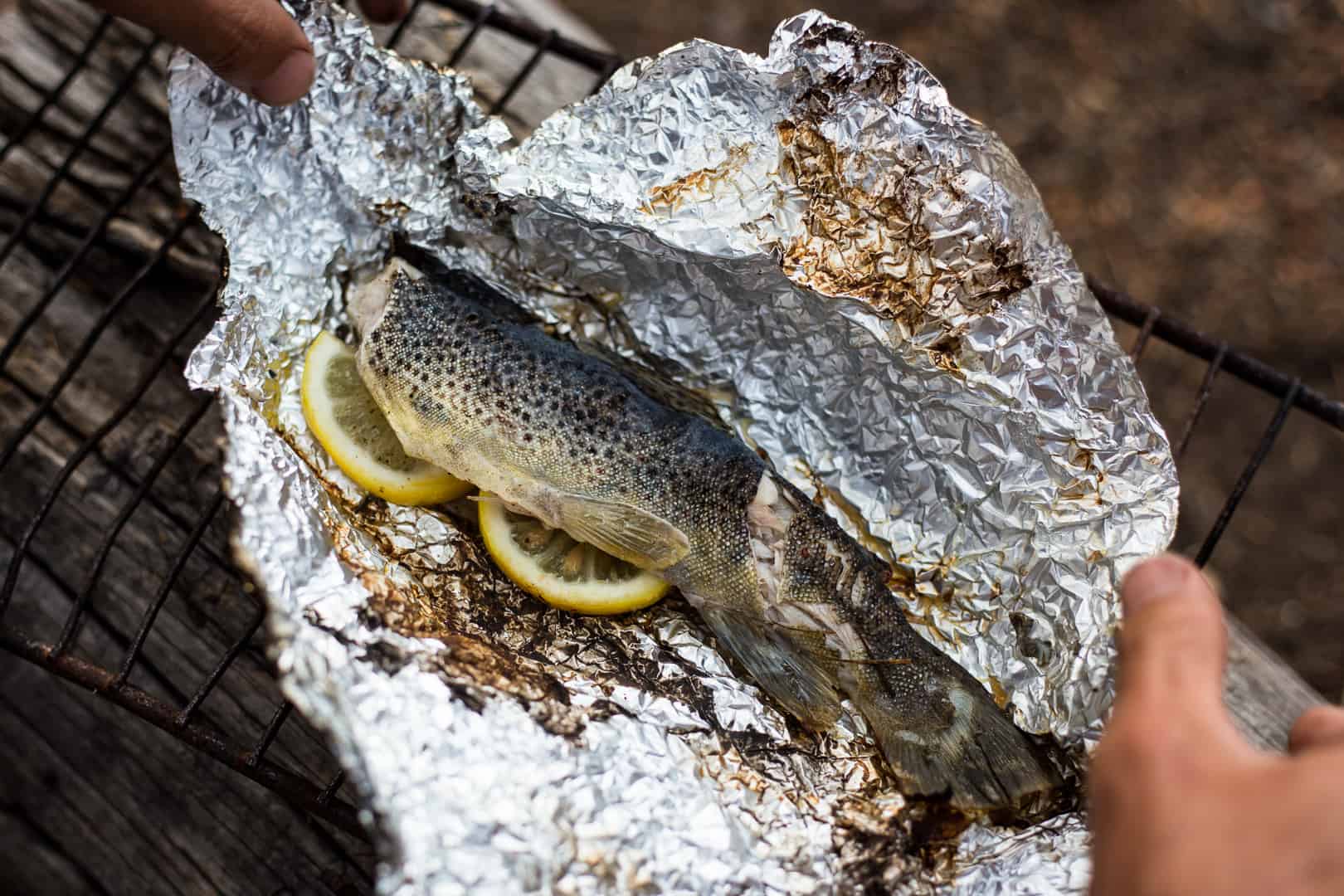
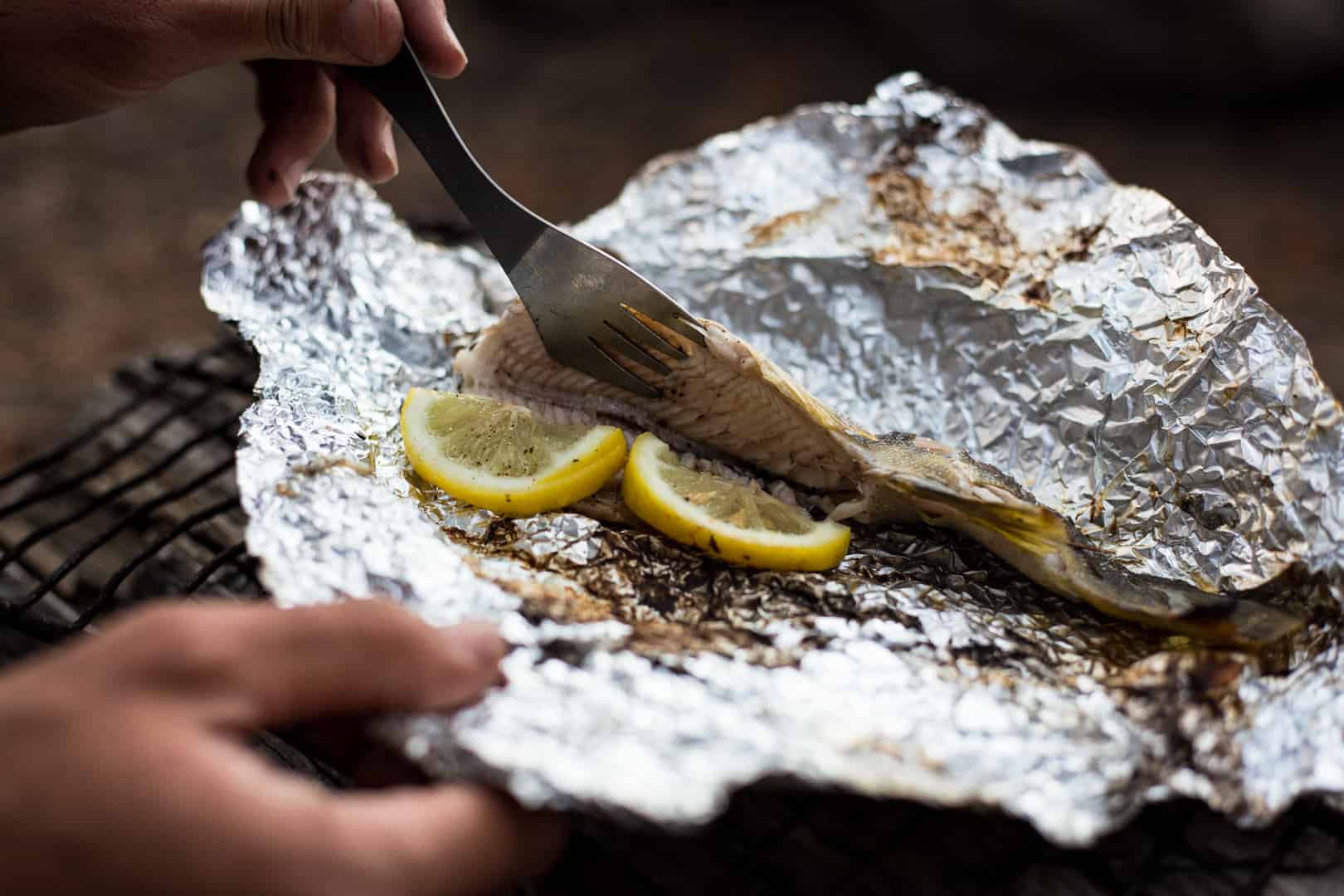
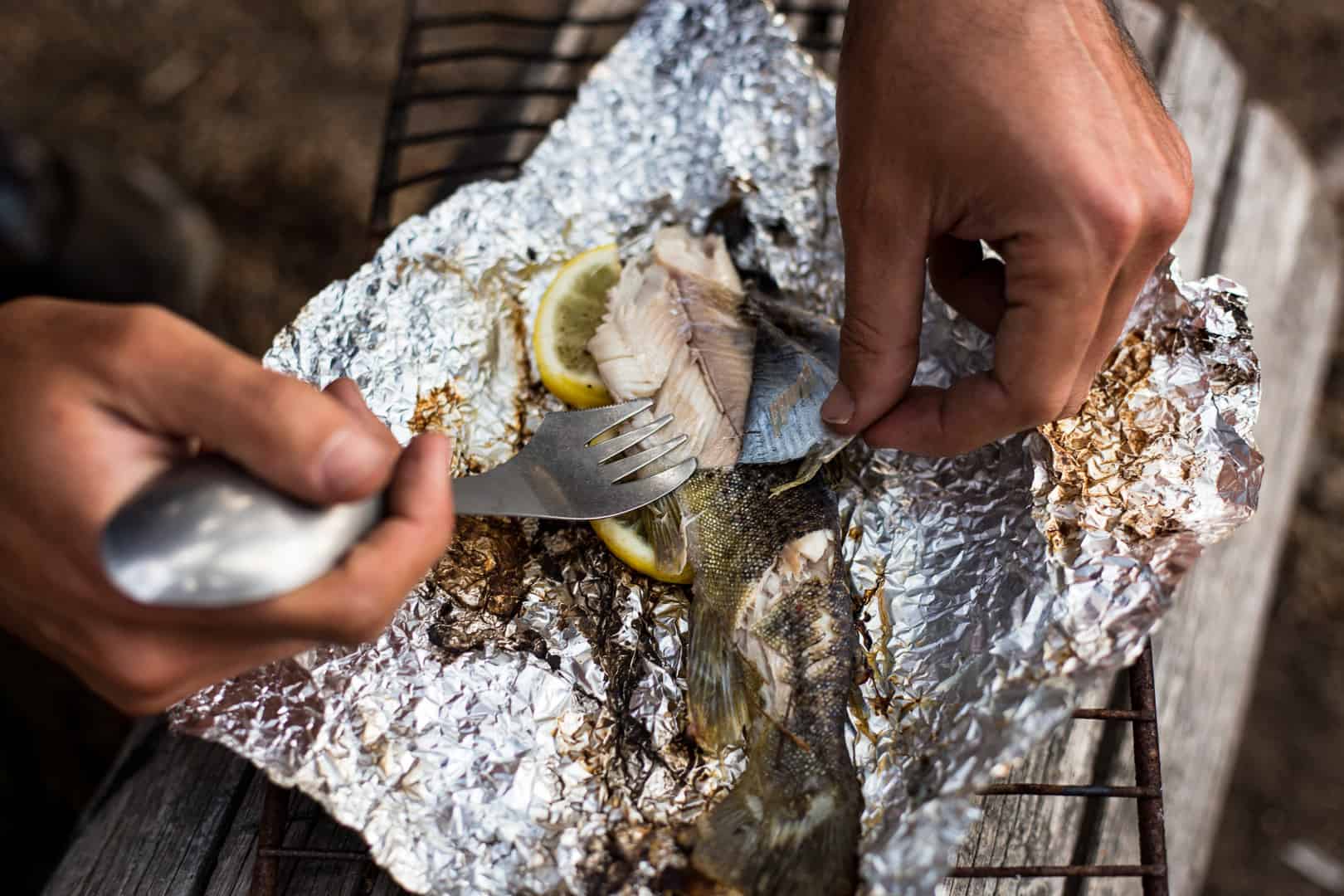
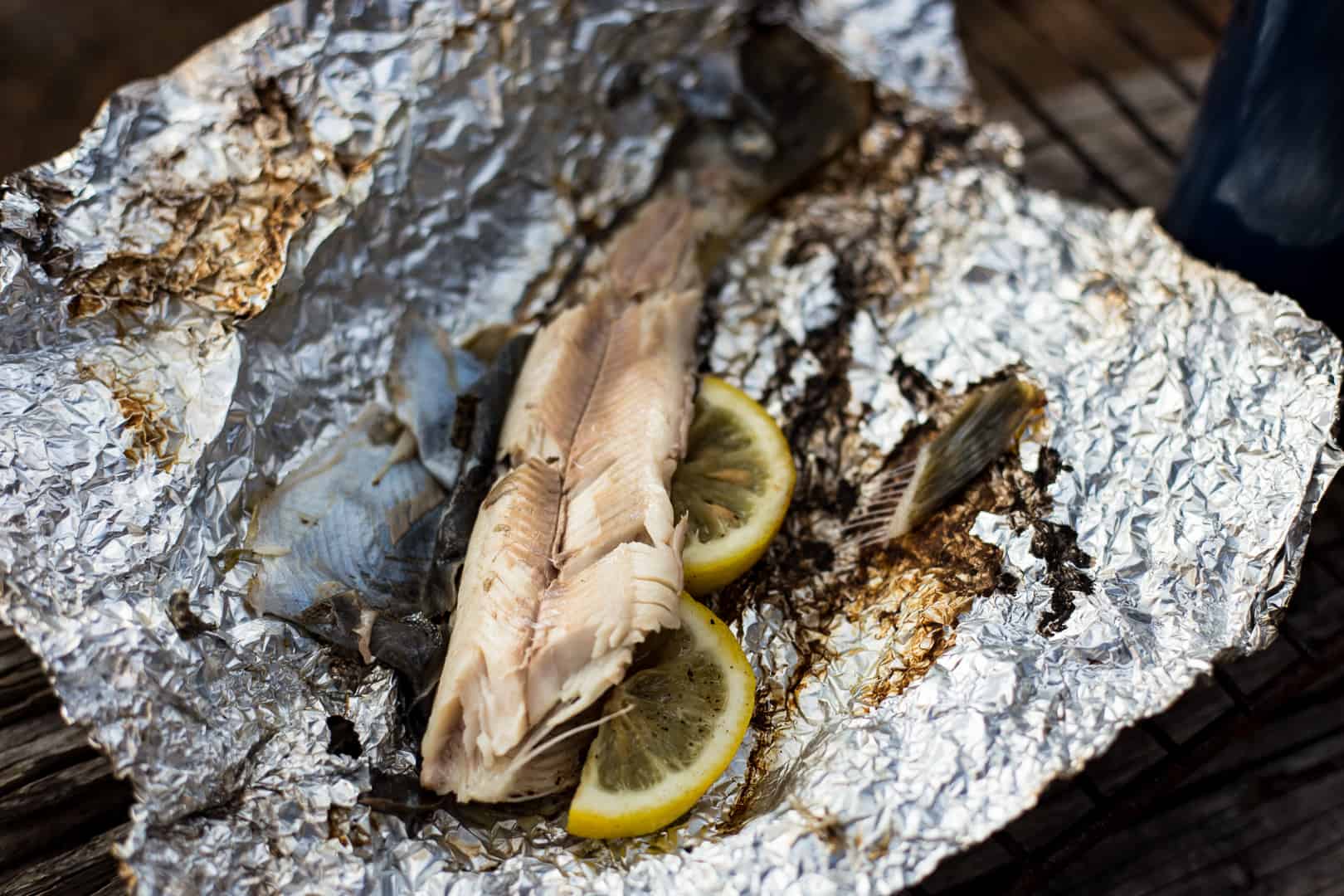
The meat was thick, succulent, seasoned on-point and just cooked through. A little salt, pepper and some citrus go a long way in the backcountry, especially when you’ve been eating rehydrated meals for a few days.
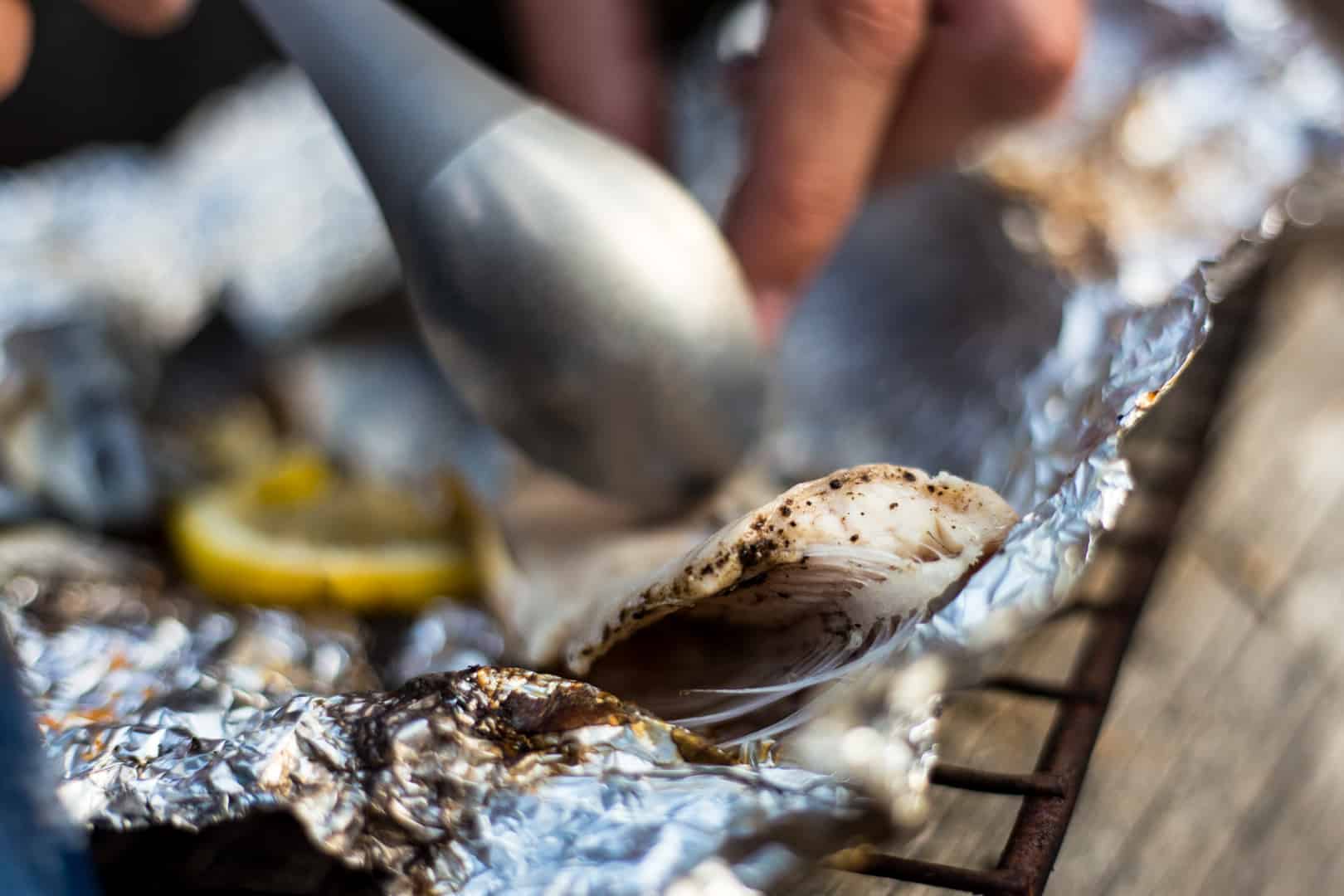
There was enough for Hergy and I and a bite or two for my dog, Gunther — not that we wouldn’t have eaten more had we caught and cooked it. The fish was divine.


A few bones and some fins were all that remained. We were both awed by how delicious the trout was and how spiritual the meal felt — like the taking of a sacrament in a cathedral of granite and wood.
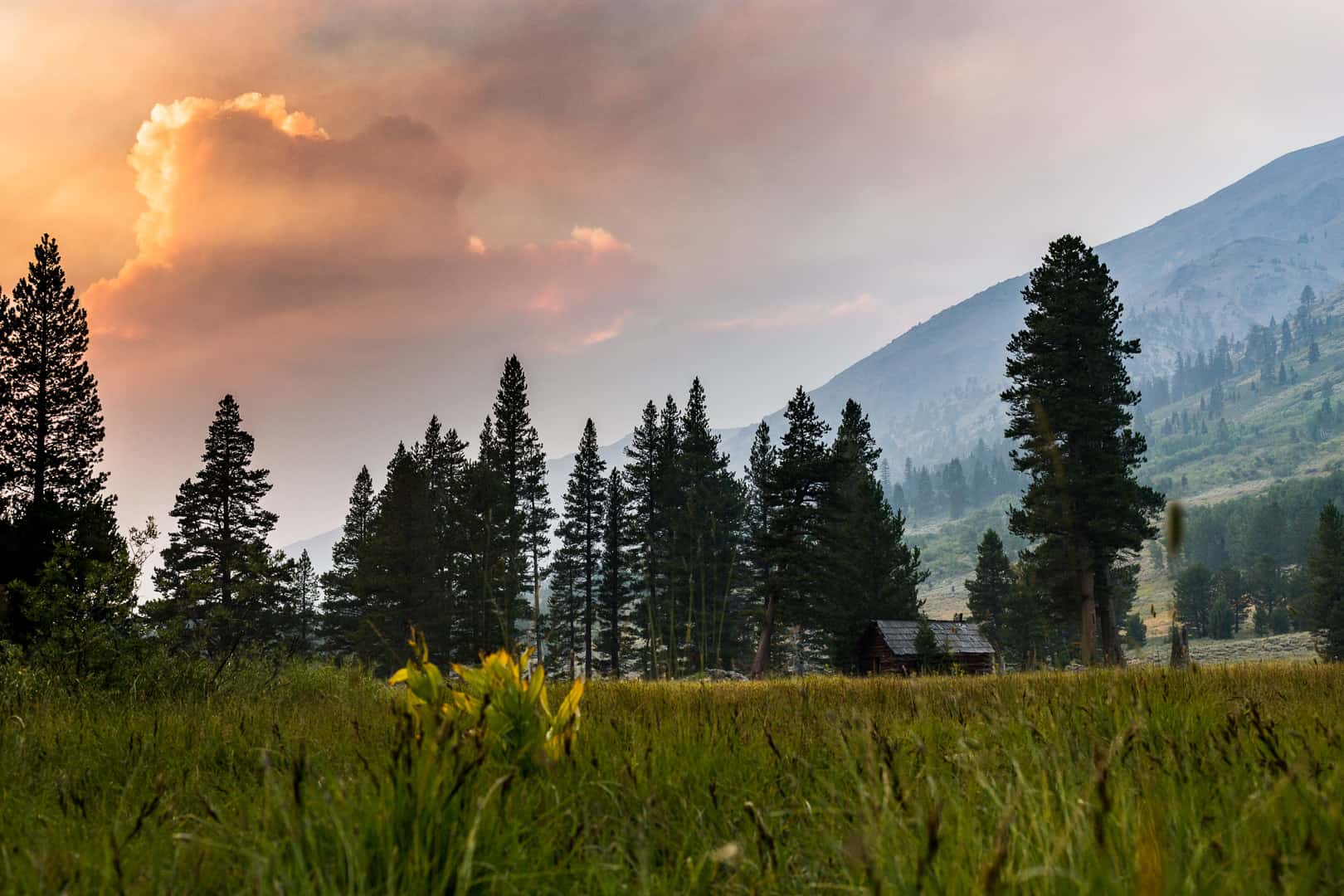
We had cooked and eaten the fish at an empty campsite in a stand of pine trees along Kennedy Creek with a beautiful view down the valley. Afterwards, golden-red light flooded the meadow, filtered by the smoke and haze from the Donnell Fire. Night was coming, but we were in no hurry to go. We sat with our backs against the trees and watched clouds of smoke dance in the wind. It had been a good day in the high country.
I have kept and eaten only a handful of trout in my lifetime. Rarely, in my mind — and I love fish — does the dinner justify the death. As the planet warms, trout are having a rougher and rougher go at it, and there are usually tastier things to eat on camping trips. Things that don’t require a rendezvous with death and blood and guts just prior to mealtime. But I have made exceptions.
A recent trip into the Emigrant Wilderness was one of them. I was there with my friend, Hergy, who was learning to fly fish. He had never really had the chance to catch, clean, cook and eat a fish. Here we were in the high country, with plenty of brown trout coming to hand out of a healthy fishery, so we decided to indulge. It was a profound experience, and one of the best things I’ve eaten in a long time.
Hergy fishing Kennedy Lake, where he caught our dinner. A pyrocumulus cloud from the Donnell Fire billows in the background. The fire was raging just a few miles away and ended up burning more than 36,000 acres.
As soon as Hergy and I had agreed to keep a fish, they stopped rising and we couldn’t catch one to save our lives. We kicked ourselves for being indecisive earlier and letting so many go. I started back toward camp a bit dejected, but before long Hergy came ambling down the trail with this fine brown trout dangling from his hand.
I handed Hergy a dull knife and he cleaned the fish to perfection despite the handicap. If you make a couple of cuts in the right places, you can remove the head and all the nasty bits with one yank.
Here’s what you’re left with if you do it right — just the skin and butterflied fillets, ready to be stuffed with salt, pepper, and lemon slices.
It’s rare to have a campfire in the Sierra Nevada backcountry, but they were permitted in this section of Emigrant Wilderness. Hergy started one the old fashioned way with flint and steel. I don’t think we would have kept a fish had we been unable cook it over a wood fire — it’s an important part of the experience we were after.

When the fire was ready, we seasoned the trout with salt and pepper, stuffed it with lemon slices and wrapped it in foil. Three minutes per side, then a few more to rest, and it was ready.
The meat was thick, succulent, seasoned on-point and just cooked through. A little salt, pepper and some citrus go a long way in the backcountry, especially when you’ve been eating rehydrated meals for a few days.
There was enough for Hergy and I and a bite or two for my dog, Gunther — not that we wouldn’t have eaten more had we caught and cooked it. The fish was divine.


A few bones and some fins were all that remained. We were both awed by how delicious the trout was and how spiritual the meal felt — like the taking of a sacrament in a cathedral of granite and wood.
We had cooked and eaten the fish at an empty campsite in a stand of pine trees along Kennedy Creek with a beautiful view down the valley. Afterwards, golden-red light flooded the meadow, filtered by the smoke and haze from the Donnell Fire. Night was coming, but we were in no hurry to go. We sat with our backs against the trees and watched clouds of smoke dance in the wind. It had been a good day in the high country.
